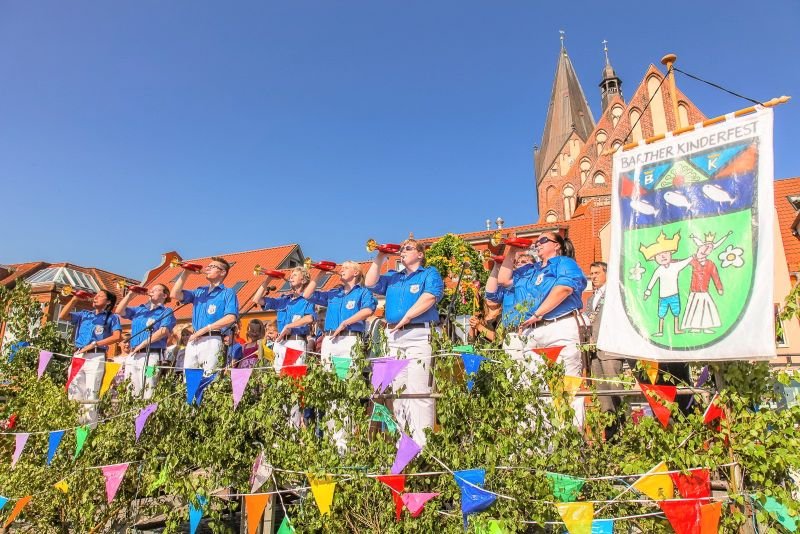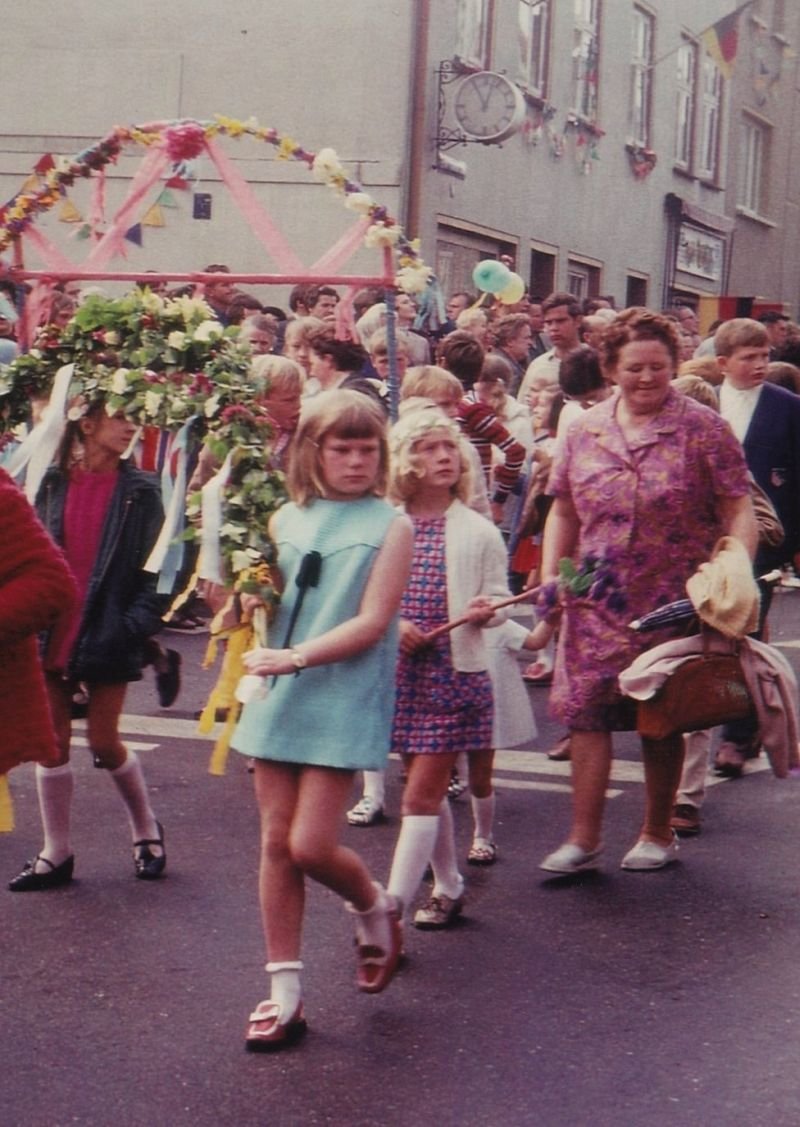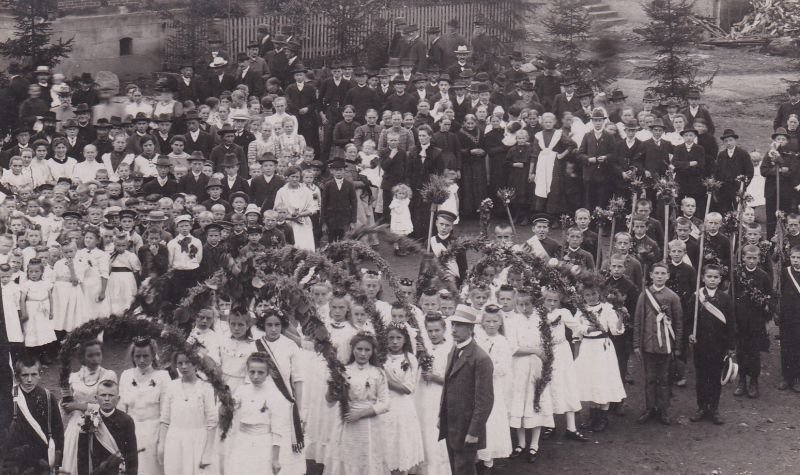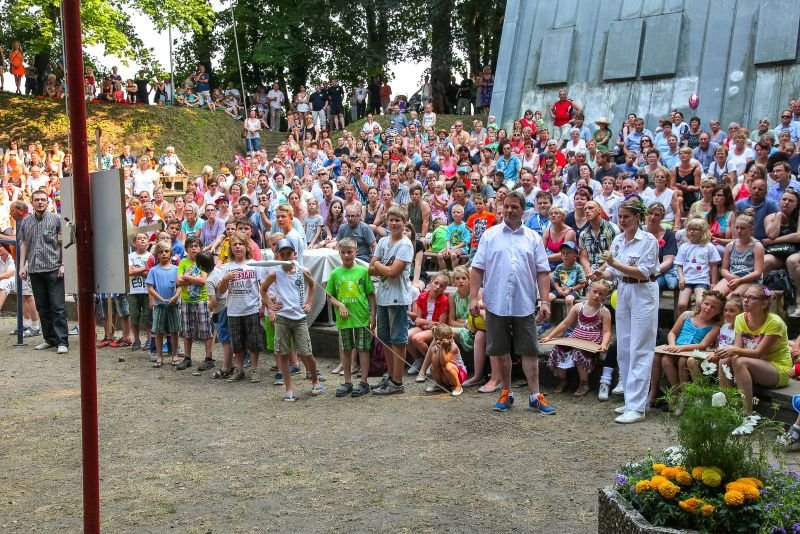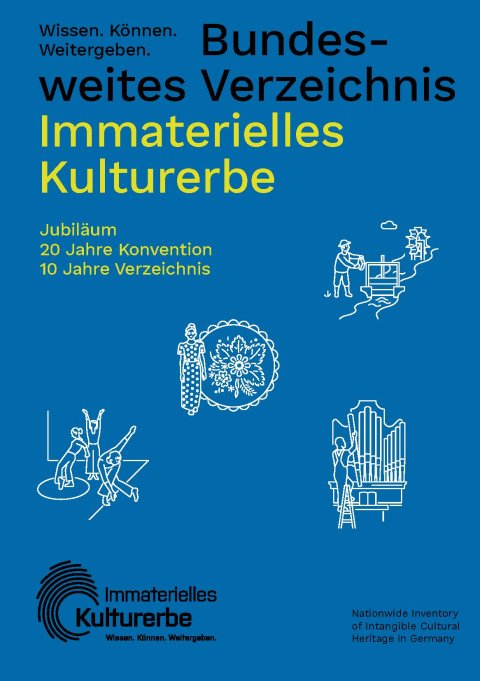Nationwide Inventory of Intangible Cultural Heritage
Children’s Festival in Barth
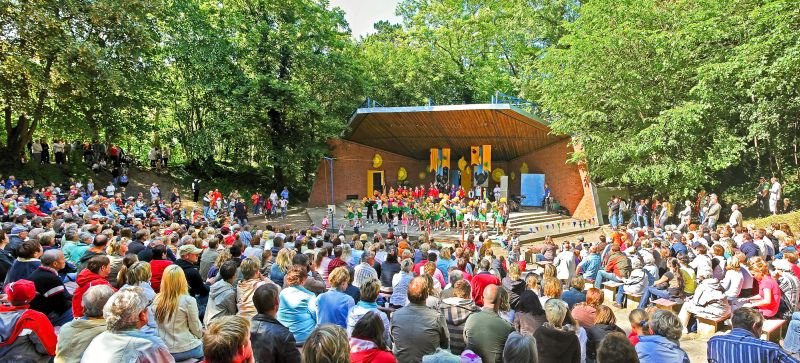
Every year, a Children’s Festival takes place in the small town of Barth in Mecklenburg-Vorpommern. In 1828, the precentor and teacher Wilhelm Müller celebrated a children’s feast with his boys’ class, during which a “King” was determined by a shooting competition with crossbows. Since 1867, girls also participate in the festival and since then also a “Queen” is determined. The tradition of the Children’s Festival has since been passed on and was regularly expanded to meet modern interests and standards.
Facts & figures
Crucial date: 1st Saturday of July
Inscription: 2016
Domains: oral traditions and expressions; social practices, rituals and festive events
Where to find: Barth, Mecklenburg-Western Pomerania
Contact
Barther Heimatverein e.V.
Mario Galepp (Chairman)
@email
www.barther-heimatverein.de
Barther Heimatverein e.V.
Holger Friedrich (Vice Chairman)
@email
City Administration
Heyko Mews (Head of Cultural Bureau)
@email
The festival in its modern form begins in the morning with the “musical wake-up call” of Barth’s marching band while last year’s royal couple is being picked up from home. The city’s children meet at their schools and walk in a star-shaped parade to the market square, where the Children’s Festival is opened by speeches, partly delivered in Low German dialect.
Afterwards, the parade moves to the festival ground where, throughout the day, all candidates compete for the two royal titles. The new royal couple may then together with the mayor take a scenic flight across their new “kingdom”.
In the afternoon, about 250 children of Barth present a diverse program on an open-air stage.In the evening, choirs and other musicians perform in the St. Marien Church. It is followed by the Last Post (“Zapfenstreich”) played by the marching band accompanying the new royal couple home. Finally, fireworks call an end to the day.
Since 1991 the festival is organized by the “Barther Heimat-Association”. Until then schools were responsible for the organization. Today, the cooperation between the municipality and the association allows for the special character of the festival.
